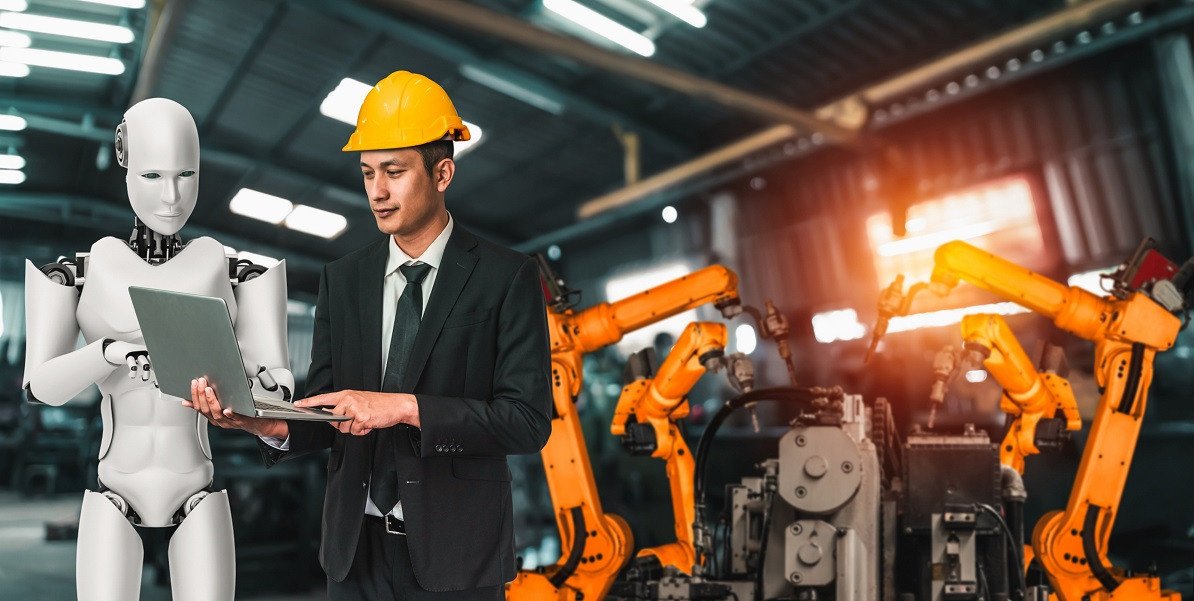Transforming Factory Compliance: How AI Revolutionizes Tracking and Reporting
Introduction:
Compliance tracking and reporting play a crucial role in ensuring the safety, quality, and ethical standards of factory operations. Traditional methods of compliance management often involve manual processes and are prone to human errors and inefficiencies. However, with the advent of Artificial Intelligence (AI), factory compliance is being revolutionized. AI-powered systems bring automation, accuracy, and real-time insights to compliance tracking and reporting, significantly improving overall operational efficiency. This article explores the profound impact of AI on compliance management in factories, highlighting the benefits it brings and the transformation it offers to the manufacturing industry.

- Automated Compliance Monitoring:
AI-powered systems can automate the monitoring of various compliance parameters in factories. These systems can analyze real-time data from sensors, cameras, and other monitoring devices to detect potential compliance violations. For example, AI algorithms can monitor factors such as environmental conditions, safety protocols, and production quality, ensuring adherence to established standards. Automated compliance monitoring eliminates the need for manual checks, reducing human errors and enabling proactive identification and rectification of compliance issues.
- Predictive Analytics for Risk Mitigation:
AI algorithms can utilize historical data and real-time inputs to predict and identify potential compliance risks in factories. By analyzing patterns and trends, AI-powered systems can proactively identify areas that are prone to non-compliance or violations. This capability allows factory managers to take preemptive measures to mitigate risks, prevent costly penalties, and maintain a compliant working environment. Predictive analytics provided by AI can also assist in optimizing resource allocation and implementing preventive maintenance, further enhancing compliance and operational efficiency.
- Real-time Reporting and Documentation:
AI streamlines the process of compliance reporting and documentation by automating data collection and analysis. Real-time data from various sources can be aggregated and analyzed by AI systems, enabling prompt and accurate reporting. This capability is particularly valuable in highly regulated industries where compliance reports need to be submitted regularly. AI-powered systems can generate comprehensive reports, reducing manual effort and minimizing the risk of errors. Real-time reporting also allows for quick identification and resolution of compliance issues, improving overall factory operations.
- Continuous Training and Education:
AI can play a vital role in providing continuous compliance training and education to factory employees. AI-powered systems can deliver personalized training modules based on an employee's role, specific compliance requirements, and individual progress. These systems can offer interactive simulations, quizzes, and assessments to ensure employees' understanding of compliance regulations. Regular training, supported by AI, fosters a culture of compliance awareness, reducing the likelihood of violations and promoting a safe and ethical working environment.
- Enhanced Auditing and Transparency:
AI facilitates auditing processes in factories by providing accurate and detailed insights into compliance activities. Auditors can leverage AI-powered systems to access comprehensive and real-time data, enabling efficient and thorough assessments. AI algorithms can analyze vast amounts of information, detect anomalies, and flag potential compliance issues for further investigation. This level of transparency promotes trust and accountability throughout the compliance management process, leading to improved compliance standards and better relationships with regulatory bodies.
Conclusion:
AI is revolutionizing compliance tracking and reporting in factories, bringing automation, accuracy, and real-time insights to the manufacturing industry. With AI-powered systems, factories can benefit from automated compliance monitoring, predictive analytics for risk mitigation, real-time reporting, continuous training, and enhanced auditing capabilities. The adoption of AI in compliance management streamlines processes, reduces human errors, and improves overall operational efficiency. As AI continues to advance, factories can expect increased compliance effectiveness, reduced compliance-related costs, and a safer working environment for employees. Embracing AI in compliance tracking and reporting is not only a strategic move but also a step towards building a sustainable and responsible manufacturing industry.
seo.call-to-action.title
seo.call-to-action.money-back
seo.call-to-action.message


